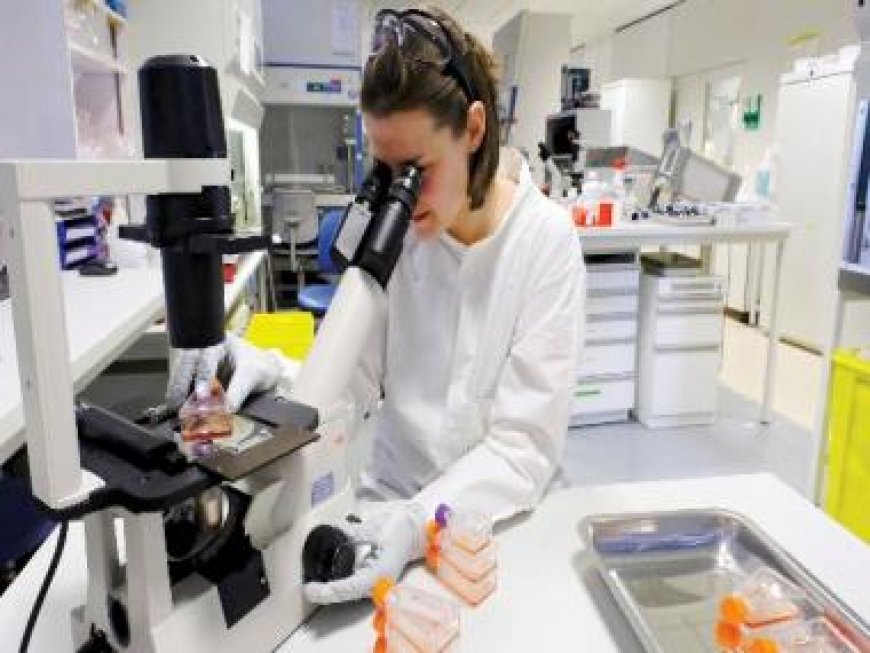Decoding gut microbiome as a tool for efficacious cancer treatment
Decoding gut microbiome as a tool for efficacious cancer treatment

With about 10 million deaths globally due to cancer in 2020, the disease is a leading cause of mortality. According to the National Cancer Registry Programme 2020, one in nine Indians is at risk of developing cancer in their lifetime. However, the sites of cancer are different among the sexes, with lung cancer in men and breast cancer in women being the leading sites. An increasing number of studies suggest a close association between the development of different cancers and the gut microbiome (microorganisms naturally found in our digestive tract). Not only the progression of cancer but these microorganisms also affect the efficacy of the cancer drugs.
What is a gut microbiota test?
It is an innovative test that provides insight into which populations of microbes are thriving and which are depleting inside the human body. The test counts both the good and the bad ones. Simply put, a gut microbiota test is able to indicate any imbalance or dysbiosis in the gut. The tests are very simple and user-friendly. A person at the convenience of their home can collect the stool sample. The sample is then processed using next-generation sequencing which can precisely decipher the presence of trillions of microbes present in the gut. The tests can also profile the genes of these microbes and can hence look at the various functions of these microbes. The presence of these microbial genes and in turn their products might intervene in the way our body responds to a life-threatening disease such as cancer or its treatment.
The reason such microbiome tests have an edge over the conventional culturing ones is they utilise advanced technology due to which the culturing step is skipped and one gets to know the profile of not just the bacteria, but viruses, fungi, and the other bunch of microbes.
Why is the knowledge of gut microbes important for cancer therapies?
It is important to understand that microbes that form the gut microbiota can have both cancer-promoting and tumor-suppressing properties. The former ones usually work in any of these four ways: damaging DNA, interfering with the body’s response to DNA damage, abnormal signaling pathways, and immune suppression. In contrast, the gut microbiota’s role in tumor suppression is either by directly killing the tumor cells, starvation and suffocation of cancer cells or by exerting a positive immunoregulatory effect.
One of the main cancer therapies is chemotherapy; however, not all patients respond favourably to it. While there could be many reasons for this difference in patient outcomes, gut microbiota is one of them. For instance, gemcitabine is a widely used chemotherapy agent for pancreatic ductal adenocarcinoma (a type of pancreatic cancer). However, a gut bacteria called Gammaproteobacteria metabolizes gemcitabine and converts it into an inactive form, thus rendering the treatment futile. This piece of information if accessible to the treating oncologist can help them to devise treatment strategies accordingly. Besides diverting the course of treatment towards the one bearing higher chances of success, this approach will save time and the cost of treatment. Similarly, it has been found that responders to immunocheckpoint inhibitors (a new class of immune modulating drugs) against cancer have different gut microbiota profile than the non-responders thus suggesting a possible role of the gut microbiota in providing differential efficacy to such new age drugs!
Fecal Microbiota Transplantation: An application utilizing gut microbes
Cancer and its treatment can significantly change the gut microbiota thereby causing dysbiosis in the gut. However, such an unbalanced gut can be restored by a technique called Fecal Microbiota Transplantation (FMT). Researchers are trying FMT in many cancers and some positive outcomes have been observed however it is not yet approved for therapy.
Quality of life improvement
Cancer and its associated therapies can cause dysbiosis in the gut that may lead to chronic inflammation and other issues causing various side effects. This can impact the quality of life of the patients. Gut microbiome tests based nutritional profiling may improve the dysbiotic condition thereby improving the quality of life of the patients concerned. Tests such as Flore` (US), Viome (US), and BugSpeaks (India) provide gut microbiota-based personalized nutritional recommendations.
Takeaway
The composition and diversity of gut microbes have a crucial role in governing the success of cancer therapy and also the quality of life of affected patients. Gut microbiome tests therefore can aid as an additional tool for the treating clinicians to fight this disease!
The author is Co-founder & Director, Leucine Rich Bio Pvt. Ltd. Views expressed in the above piece are personal and solely that of the author. They do not necessarily reflect Firstpost’s views.
Read all the Latest News, Trending News, Cricket News, Bollywood News,
India News and Entertainment News here. Follow us on Facebook, Twitter and Instagram.
What's Your Reaction?



























































